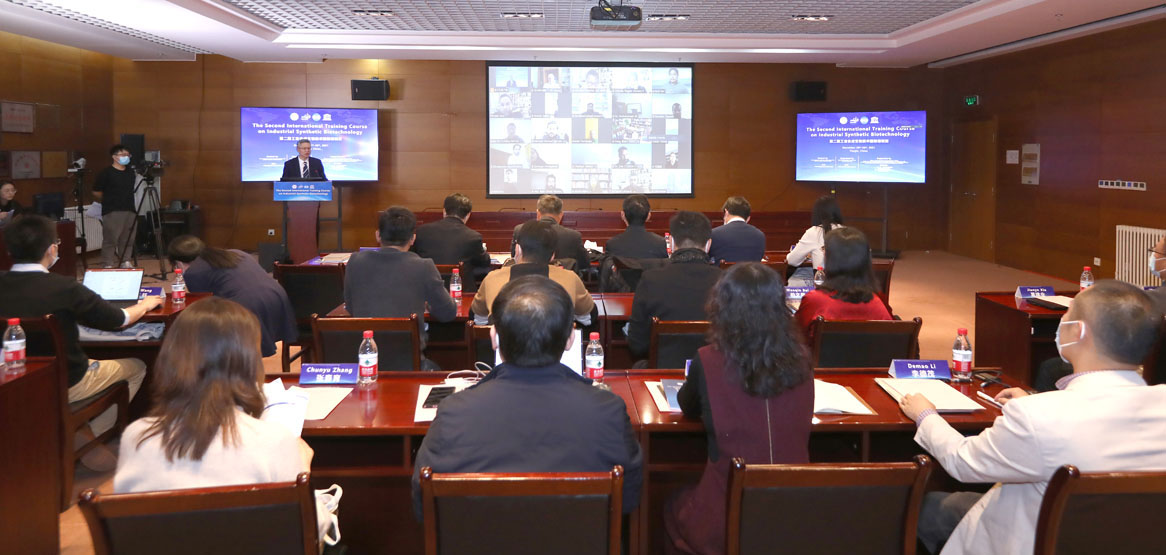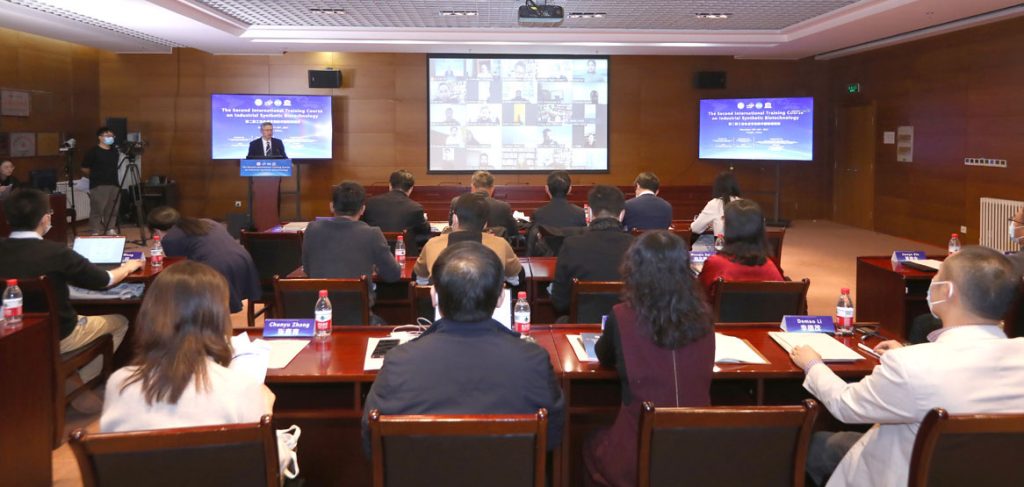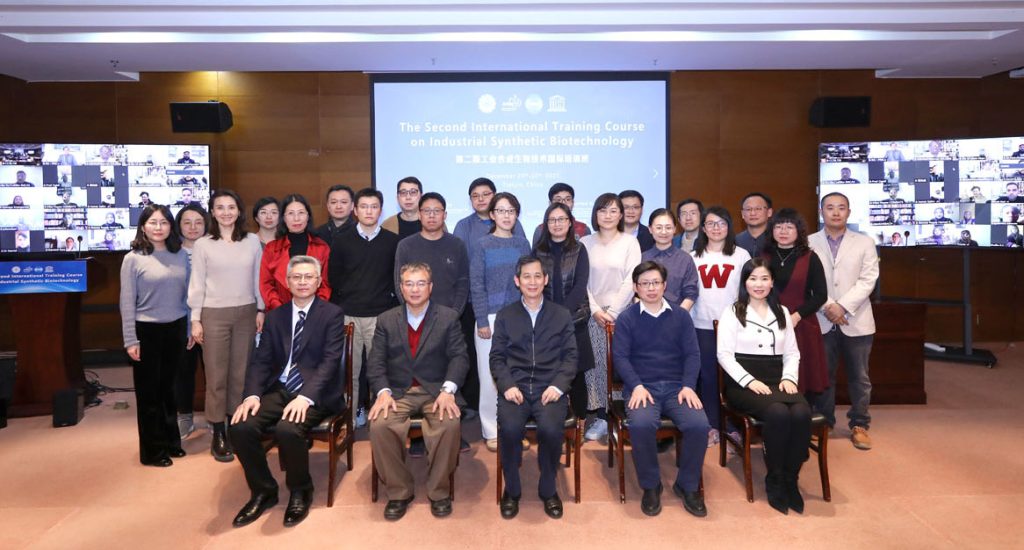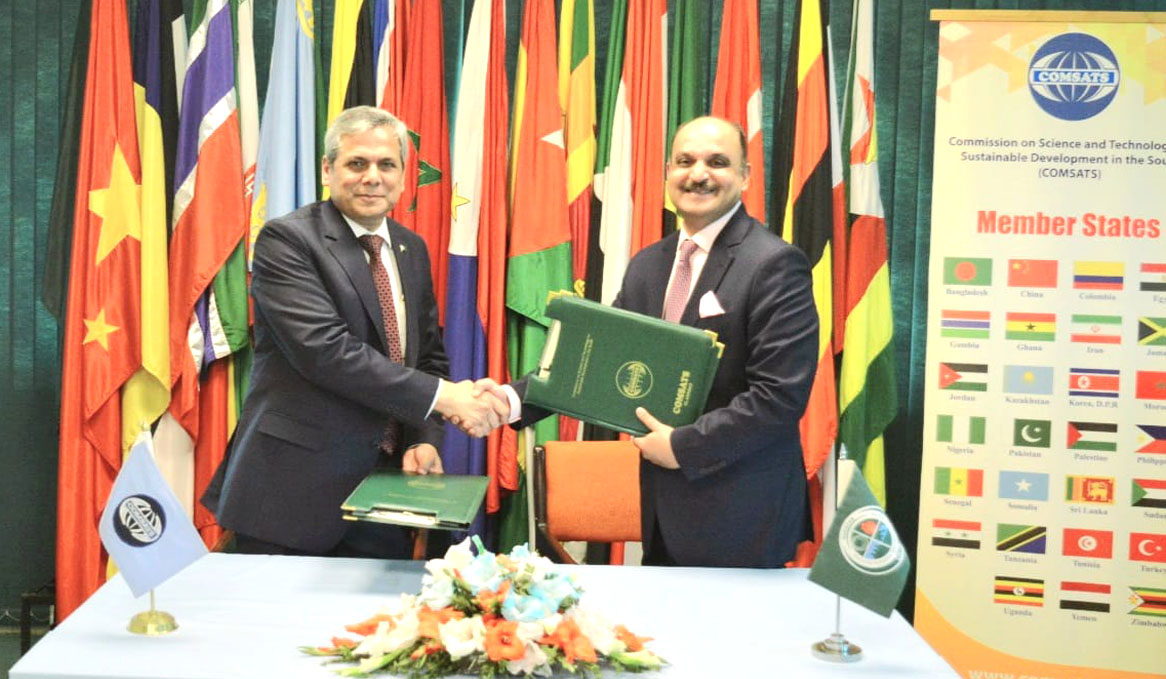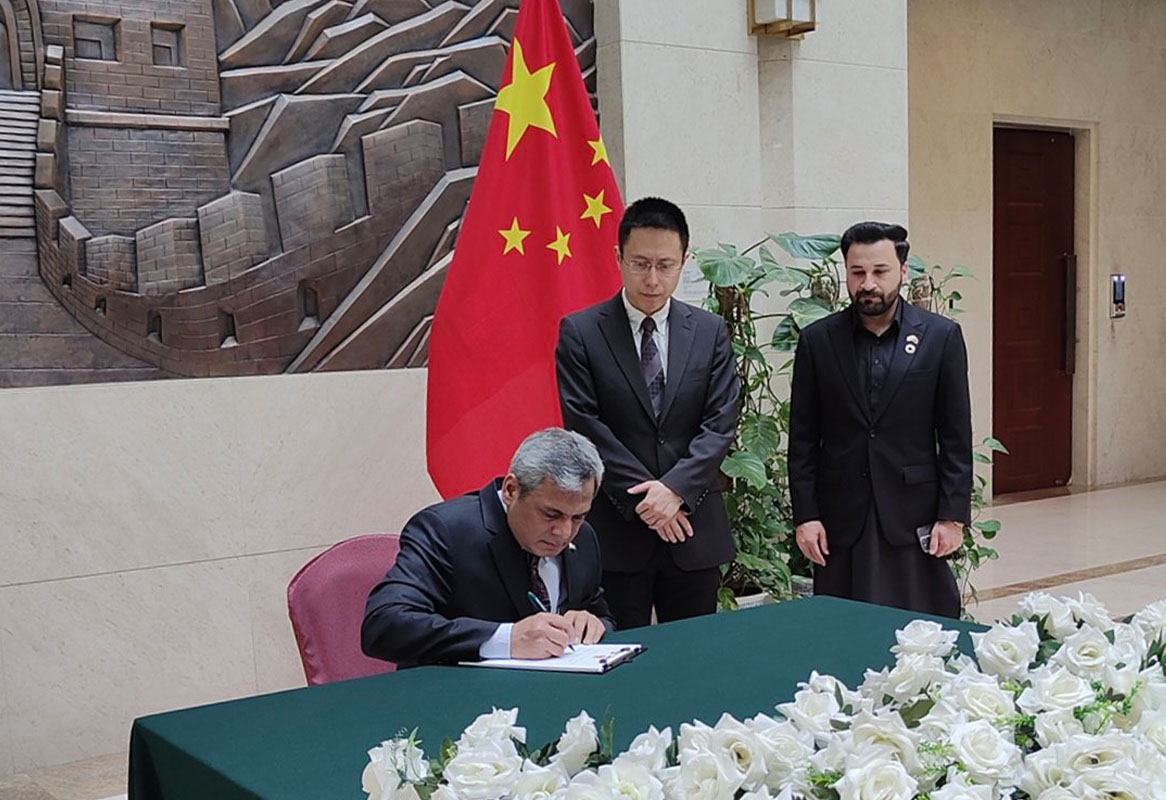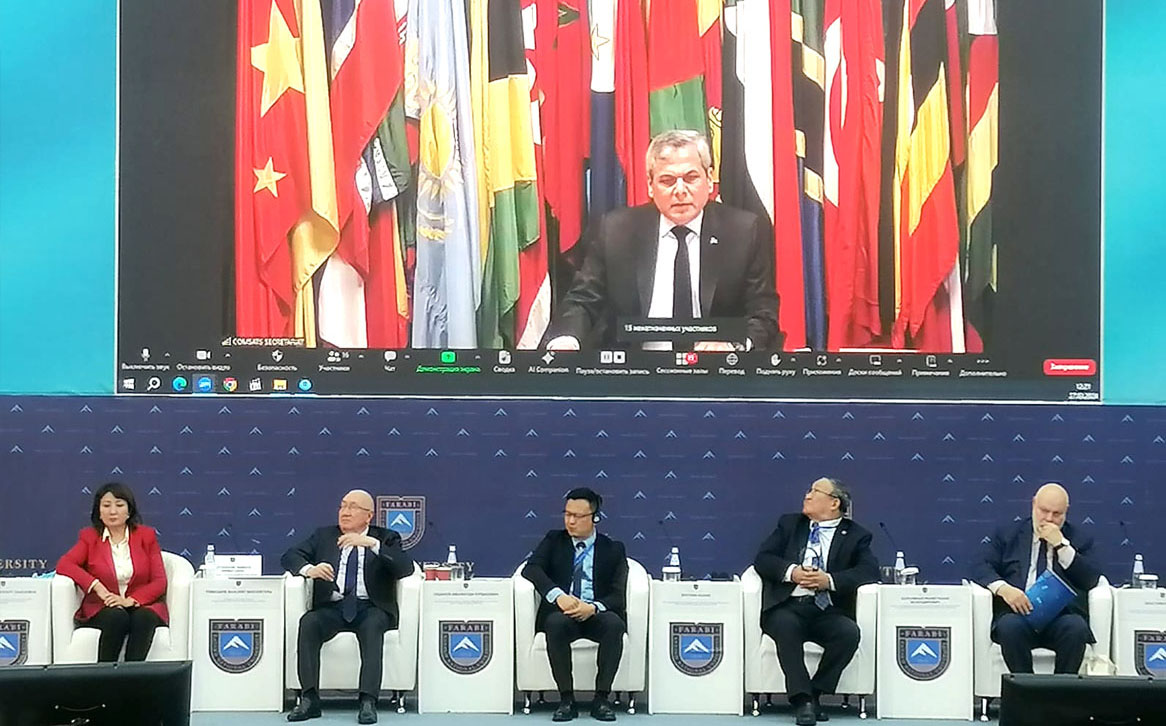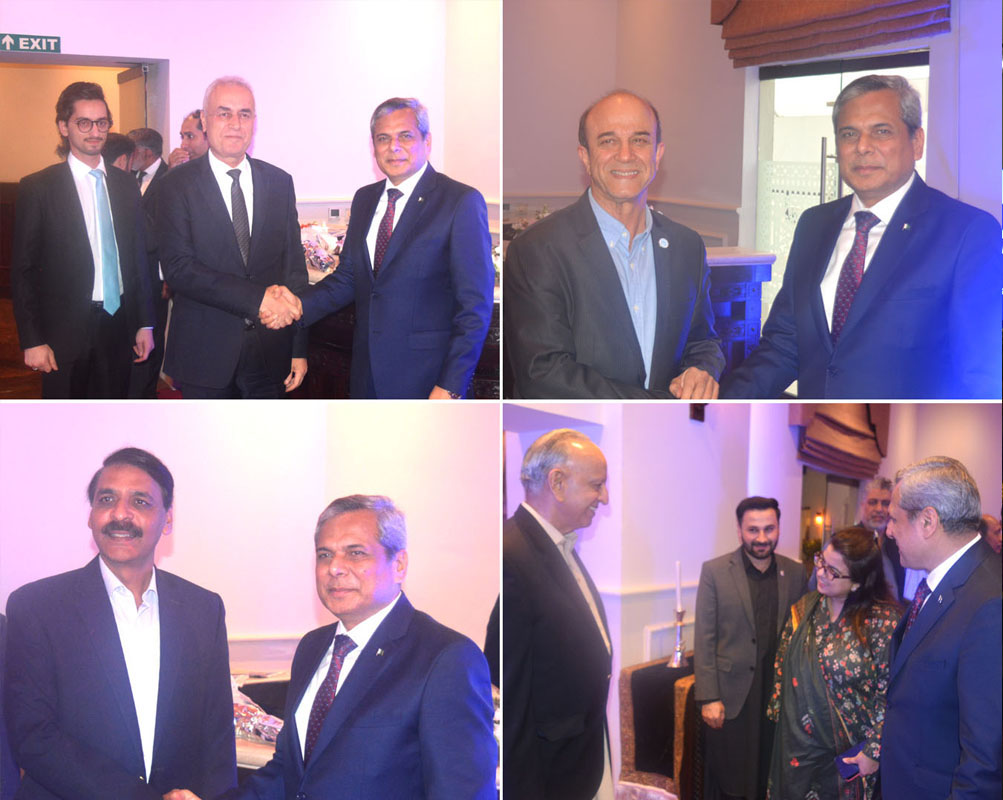Dr. Akhtar Nazir, Executive Director COMSATS, highlights at a joint training Course in China the significance of Industrial Synthetic Biotechnology and important aspects of R&D during the Pandemic
The opening ceremony of Second International Training Course on Industrial Synthetic Biotechnology was held on 20th December 2021. The event is being organized by Tianjin Institute of Industrial Biotechnology (TIB), Chinese Academy of Sciences (CAS), China, from the platform of COMSATS Joint Center of Industrial Biotechnology (CCIB), which was established in April 2021. The objective of this Centre is to facilitate collaborative R&D activities, capacity building, S&T consultancy services, and technology transfer among COMSATS Member Countries and Centres of Excellence.
This specialized training course has the patronage and support of Alliance of International Science Organizations (ANSO); the Department of International Cooperation, Ministry of Science and Technology, China; CAS-TWAS Center of Excellence for Biotechnology, China; and Innovation Cooperation Center, Bangkok; as well as the Commission on Science and Technology for Sustainable Development in The South (COMSATS) and United Nations Educational, Scientific and Cultural Organization (UNESCO), under the project framework of “COMSATS-UNESCO South-South Regional Technical Cooperation Programme”.
The training course is focused on building the scientific and intellectual capacities of researchers and imparting cutting-edge theoretical and practical knowledge on applications of high throughput technologies in biomedicine, food and agriculture, bioenergy, bio-based materials, bio-design, and systems biotechnology. The 10-day training programme will conclude on 30th December 2021 after benefiting about 80 young researchers and PhD scholars from 17 developing countries, including member countries of ANSO, COMSATS and Belt and Road Initiative.
As host of the event, the Deputy Director-General TIB and Director CCIB, Prof. Sun Jibin, addressed the opening ceremony. The ceremony was attended by members of CCIB’s Consultative Committee and Technical Advisory Committee, as well as distinguished members of TIB and Organizing Committee of the training course. Virtual participation of the ceremony included that of policy makers and members of scientific community from COMSATS’ Member States. Prof. Sun noted that the event is focused on the theory, practice and application of the Industrial Synthetic Biotechnology mainly in the form of technical presentations and demonstration experiments.
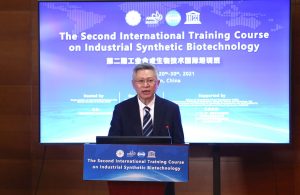
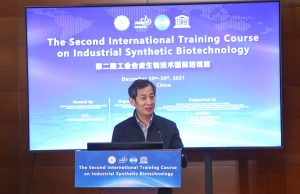
In his opening speech, Director-General TIB, Prof. Yanhe Ma, extended a warm welcome to all the participants on behalf of CCIB and TIB. He thanked and appreciated the support of ANSO, COMSATS, UNESCO, and other partners. He recalled that the first edition of the training course was organized by TIB in 2019, and expressed satisfaction on the fact that the second edition is being held with even greater international participation.
Mr. Syed Junaid Akhlaq, Secretary General, Pakistan National Commission for UNESCO (PNCU), ack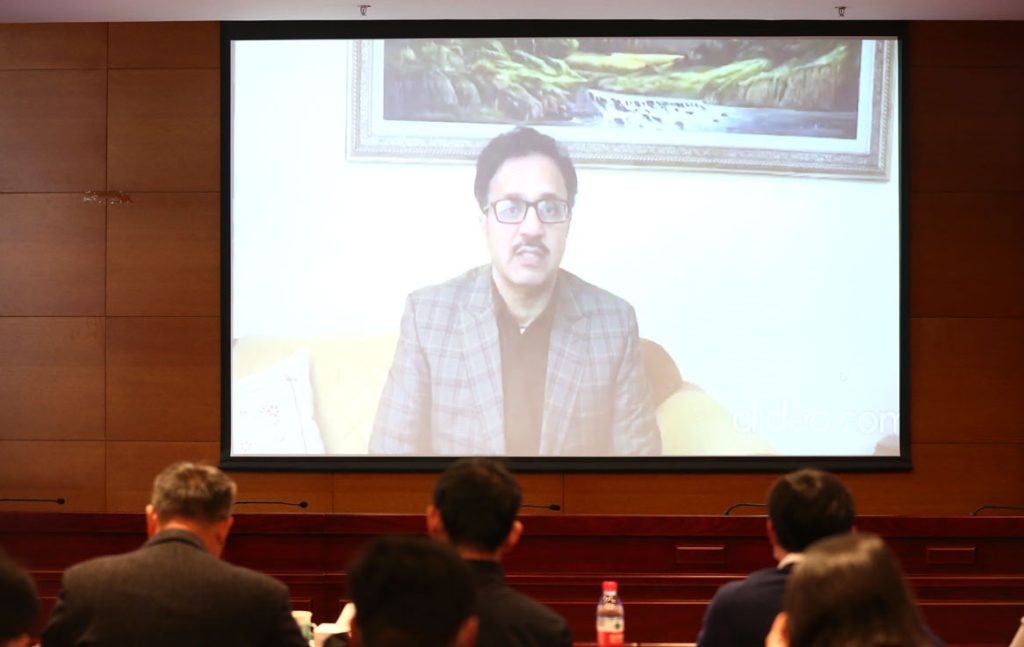 nowledged the efforts of COMSATS and TIB in organizing this important activity in partnership with other stakeholders. He underlined importance of industrial synthetic biotechnology in fulfilling the present and future needs, particularly relating to ‘healing, fueling and feeding’ the world population. Mr. Akhlaq also noted that topics being covered by this training course, including Biomedicine, Bio-agriculture, Future Food, Bio-based materials, Biochemicals and Bioenergy, are closely linked to the sustainable socio-economic development. He further commended COMSATS for its past and ongoing collaboration with UNESCO, and assured UNESCO and PNCU’s full support to strengthen this mutually beneficial collaboration.
nowledged the efforts of COMSATS and TIB in organizing this important activity in partnership with other stakeholders. He underlined importance of industrial synthetic biotechnology in fulfilling the present and future needs, particularly relating to ‘healing, fueling and feeding’ the world population. Mr. Akhlaq also noted that topics being covered by this training course, including Biomedicine, Bio-agriculture, Future Food, Bio-based materials, Biochemicals and Bioenergy, are closely linked to the sustainable socio-economic development. He further commended COMSATS for its past and ongoing collaboration with UNESCO, and assured UNESCO and PNCU’s full support to strengthen this mutually beneficial collaboration.
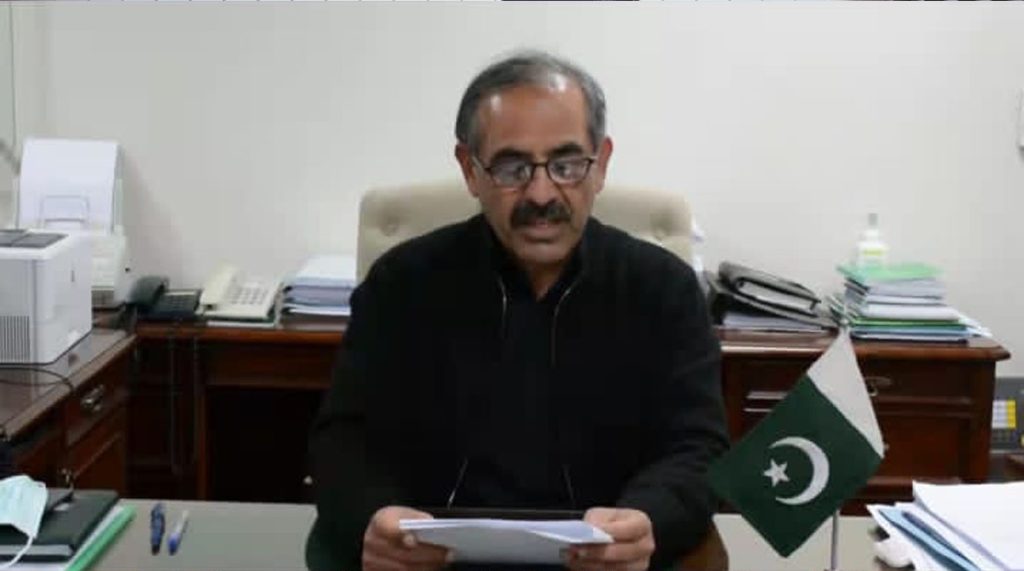 Speaking on the occasion, Dr. Akhtar Nazir, Executive Director COMSATS, expressed his gratitude to TIB for collaborating with COMSATS and for readily sharing its technological resources and expertise with other member countries of COMSATS in an important emerging field. He noted that COMSATS is supporting the training course under the framework of COMSATS-UNESCO South-South Regional Technical Cooperation. He further informed the audience that under this framework similar scientific capacity building activities are planned and will be executed in other member states of COMSATS in the areas of Industry 4.0, sustainable energy, and natural product chemistry. Dr. Nazir stressed that a positive externality of the pandemic’s long stay is acceleration of innovations and technologies in the digital, physical and biological realm that has increased the world’s pace in widespread use of devices and applications, such as Artificial Intelligence-aided genetic and metabolic engineering, Cloud Computing for biological, genomics, and drug design, Blockchain-based pandemic surveillance, and big data analytics to accelerate the development of vaccinations. Dr. Nazir hoped that participants will gain a better understanding of one another’s needs and skills, and build cooperative and long-term connections that will enable them to develop and share biotechnological advancements and apply them to help attain common social and economic goals.
Speaking on the occasion, Dr. Akhtar Nazir, Executive Director COMSATS, expressed his gratitude to TIB for collaborating with COMSATS and for readily sharing its technological resources and expertise with other member countries of COMSATS in an important emerging field. He noted that COMSATS is supporting the training course under the framework of COMSATS-UNESCO South-South Regional Technical Cooperation. He further informed the audience that under this framework similar scientific capacity building activities are planned and will be executed in other member states of COMSATS in the areas of Industry 4.0, sustainable energy, and natural product chemistry. Dr. Nazir stressed that a positive externality of the pandemic’s long stay is acceleration of innovations and technologies in the digital, physical and biological realm that has increased the world’s pace in widespread use of devices and applications, such as Artificial Intelligence-aided genetic and metabolic engineering, Cloud Computing for biological, genomics, and drug design, Blockchain-based pandemic surveillance, and big data analytics to accelerate the development of vaccinations. Dr. Nazir hoped that participants will gain a better understanding of one another’s needs and skills, and build cooperative and long-term connections that will enable them to develop and share biotechnological advancements and apply them to help attain common social and economic goals.
In her remarks, Ms. Xuemei Yang, Division Director, Department of International Cooperation, China’s Ministry of Science and Technology, recalled the cooperation that exists between COMSATS and the Chinese Ministry of Science and Technology, formalized under a Memorandum of Understanding on Silk Road Innovation that supports pragmatic cooperation through key actions, such as collaborative laboratories, science parks, technology transfer, and people-to-people exchange. She expressed her delight over CCIB’s accomplishments, which include high-level joint research and development, academic exchange, talent training, and capacity building. Ms. Yang also highlighted South-South Cooperation as an indispensable and important part of international cooperation. She noted that it is an important means for the developing countries to achieve self-reliance and seek progress, and to ensure their effective integration and participation in the world economy.
In his address, Prof. Jinghua Cao, Executive Director of ANSO Secretariat, highlighted the role ANSO is playing for promoting scientific and technological cooperation amongst countries and regions along the “Belt and Road”, in areas of high importance for green and sustainable development. He noted that ANSO-led collaborative research lays emphasis on problems-driven and needs-oriented development in order to address common challenges, strengthen people-to-people ties, and create a community with a shared future for humanity.
At the end of the ceremony, Prof. Sun Jibin made a keynote presentation, in which he gave an overview of Synthetic Industrial Biotechnology, methodologies and enabling technologies, major breakthroughs in the field, and potential implications of the next genomic revolution. The training course, he noted, has six technical sessions and six experimental sessions covering the topics of high throughput and automated genetic engineering, systems biotechnology, metabolic pathway design, protein structure analysis, intelligent fermentation technology, and DNA synthesis.
The opening session was followed by virtual tour of TIB to showcase its state-of-the-art laboratory facilities and diverse array of cutting-edge instruments.

